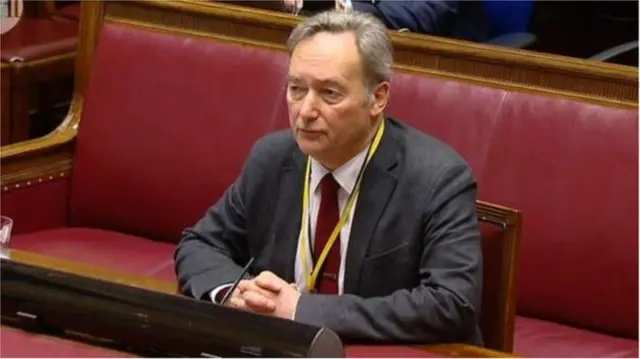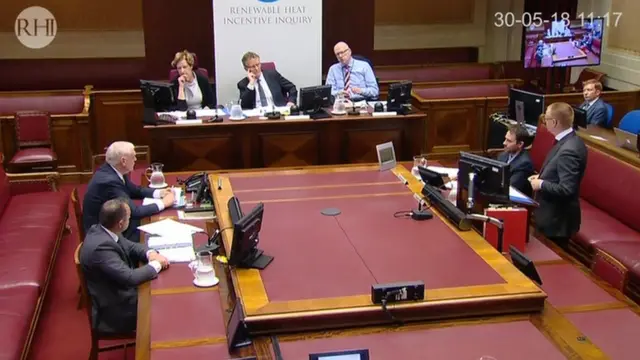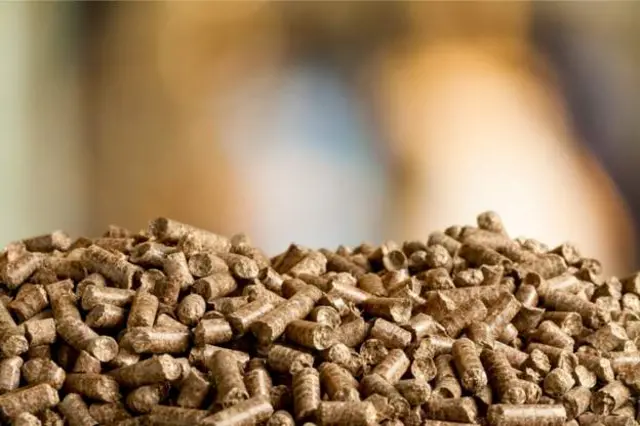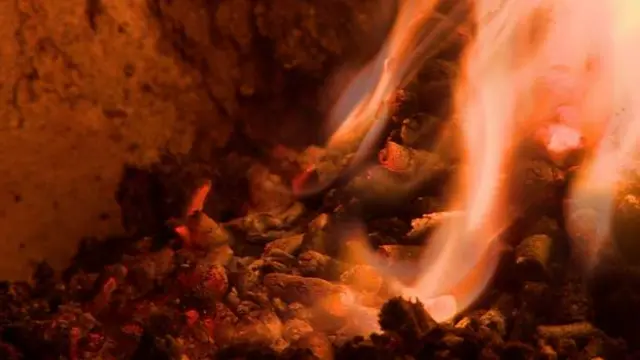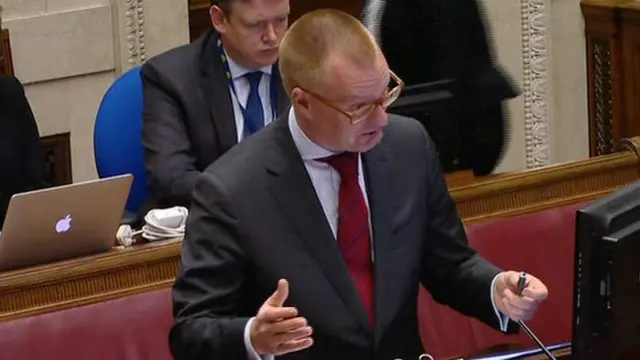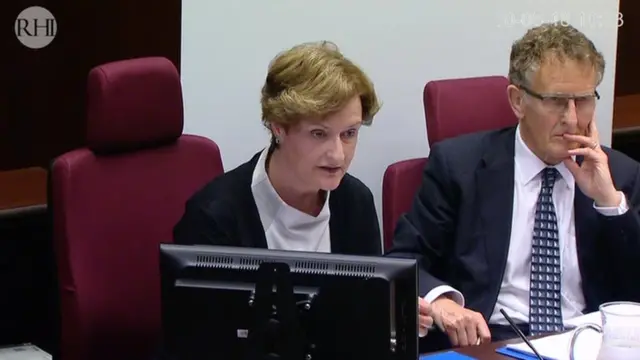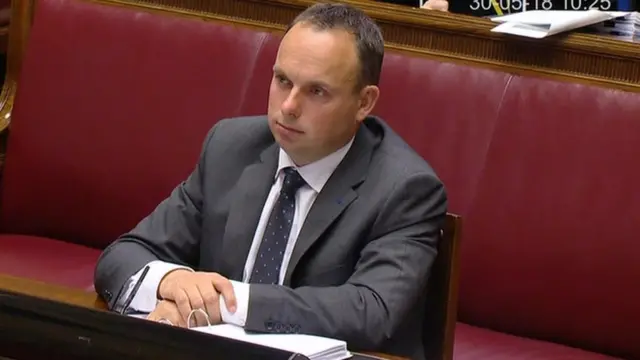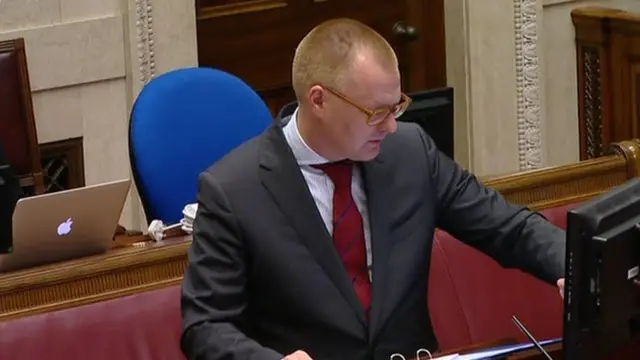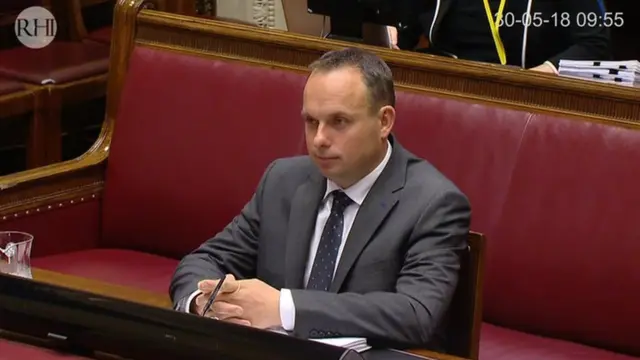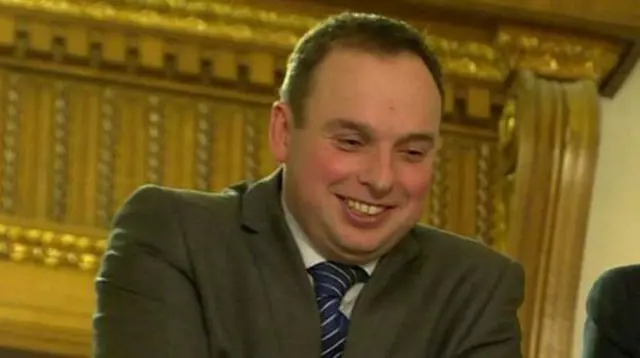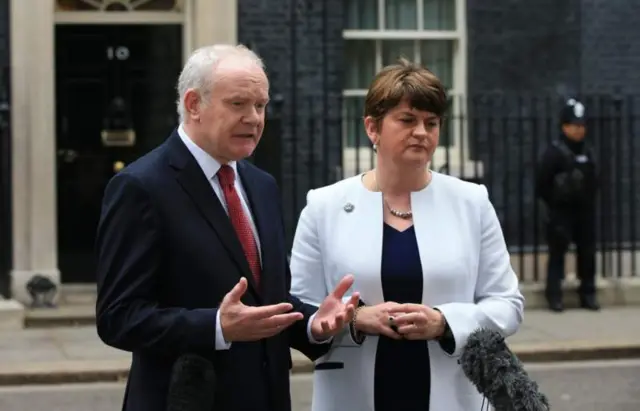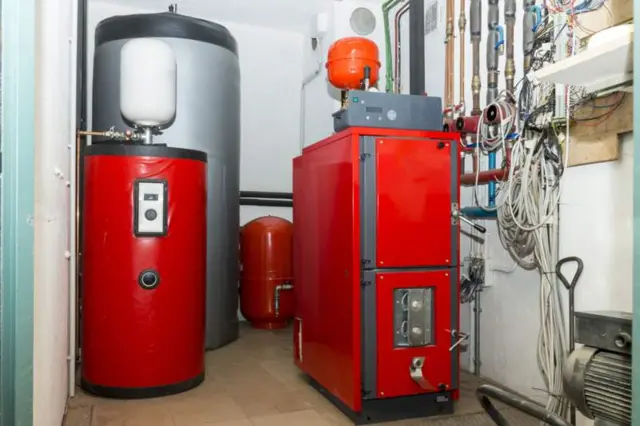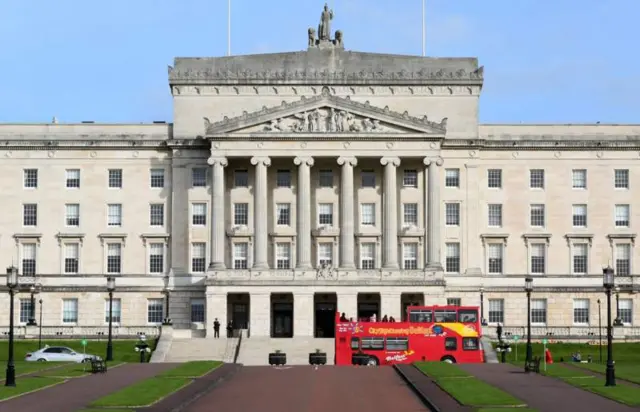'It may have given me a false sense of security'published at 12:36 BST 30 May 2018
Mr Aiken is scrutinising the DETI correspondence on the non-domestic scheme. In this correspondence, a list of main issues to be addressed, cost control does not feature.
However, further down the correspondence, it says that it may be appropriate to review existing tariffs.
Mr Aiken asks whether that would have caused Dr Crawford concern that there was a "lurking issue that been uncovered over RHI".
 Image source, Getty Images
Image source, Getty Images"Not concerned because it wasn’t being flagged up as an issue to be concerned or that we were going to run out of budget or anything like that," says Dr Crawford.
He adds that the next paragraph in the correspondence was about encouraging more people to apply for the scheme.
"It may have given me a false sense of security," says Dr Crawford.
